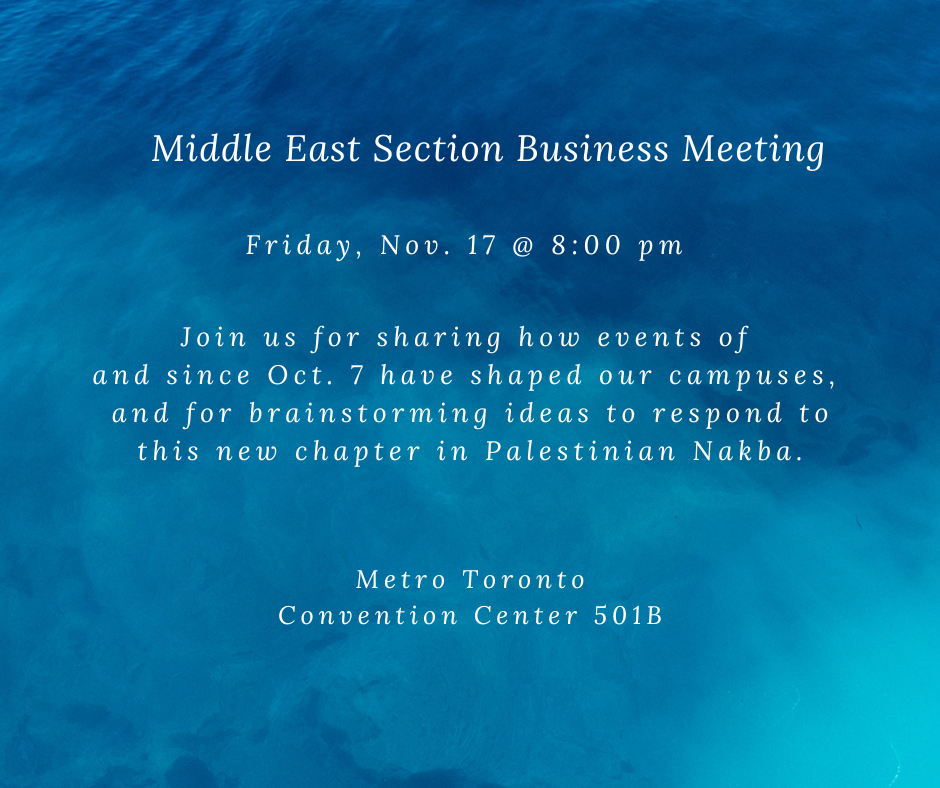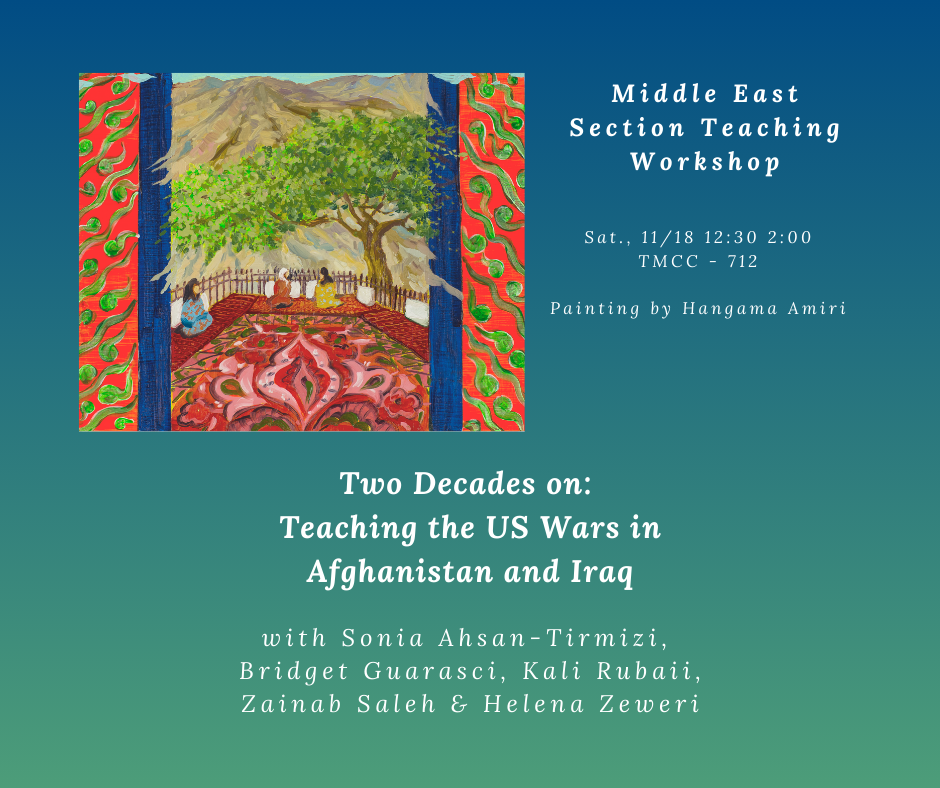January 25, 2024
As we return to classes in North America, we do so in grief and outrage knowing that the fabric of education in Gaza has been torn by death and destruction. According to a January report, the Israeli army has killed at least 94 university professors, 4,327 students, and 231 teachers and administrators since October. Schools and universities have become barracks and detention centers.
In a recent visit to Gaza, Phillippe Lazzarini, Commissioner General for UNRWA, declared, “I’m afraid that we’re running the risk here of losing a generation of children” made up of more than half a million children in the primary and secondary school system. Education is at the heart of society, and this is especially true for a population as young as Gaza’s, in which about half of the population are children. Destroying precious institutions like schools, universities, libraries, museums, and after-school programs constitutes a massive and catastrophic educational loss for the future that will have consequences for decades to come. The destruction of educational systems is also analyzed as part of South Africa’s accusation of genocide against Israel at the International Court of Justice.
According to Euro-Med Human Rights Monitor, in this war, schools have become shelters and Israeli detention and torture centers. On December 30, UN OCHA reported that 90% of schools were being used as shelters, and many had sustained damage. According to Euro-Med Human Rights Monitor, Israel has “systematically destroyed every university in the Gaza Strip in stages over the course of the more than 100-day attack.” Early in the war, on October 9, Israel bombed the Islamic University, the largest university in Gaza, and Al-Azhar University. On December 10, Israel destroyed the medical school of the Islamic University. Israel blew up Al-Israa University in Gaza on January 18, 2024, after having used it as a military base and detention center. According to the South African petition, 74% of schools in Gaza have been damaged or destroyed. This live UNICEF dashboard reports and maps that as of January 22, 272 public schools and 106 UNRWA schools have been damaged throughout the Gaza Strip.
Many amongst the more than 25,000 tragically killed since October 7th have been prominent university leaders, teachers, educators, and public intellectuals deeply dedicated to keeping alive the right of Palestinians in Gaza to knowledge and educational resources while they are living under siege. Euro-Med Human Rights Monitor writes, “the Israeli army has targeted academic, scientific, and intellectual figures in the Strip in deliberate and specific air raids on their homes without prior notice.”
Among those killed was Islamic University English professor and poet, Refaat Alareer, who, anticipating imminent death, wrote a poem urging, “If I must die / let it bring hope / let it be a tale”. He was a co-founder of the We Are Not Numbers project, a youth-led initiative to go beyond numbers of deaths and casualties in writing about Gaza. Alareer’s poetry and life have inspired protests, readings, and kite-flying solidarity and mourning events all around the world.
Also killed was Professor Sufian Tayeh, president of the Islamic University, who was killed with his family in an Israeli airstrike on his home in the Jabalia refugee camp on December 2. A leading researcher in physics and applied mathematics, he had been appointed UNESCO chair for Physical and Astrophysical sciences in Palestine. Tayeh was born in Jabalia and educated in UNRWA schools, and he received his BA, MA, and PhD degrees in physics from the Islamic University.
A past president of the Islamic University, Mohammed Shabir, was also killed in an air strike with his family, on November 14. He was a microbiologist, and in 2007 had been regarded as the next potential prime minister for a unity government. Israeli soldiers also shot and killed Dr. Ahmed Hamdi Abo Absa, Dean of the Software Engineering Department at the University of Palestine, after Israeli soldiers released him from three days of enforced disappearance at the Muqaddasa (Holy) Family School.
We heed the call of Birzeit University to the global academic community: “Do Not Be Silent about Genocide.” We recognize and appreciate the statement of the Middle East Studies Association in November addressing the destruction of the educational system in Gaza. We invite people to learn from Insaniyyat’s Voices from Gaza project. We remind people of the academic boycott, supported by a growing number of institutions as a nonviolent way to call out how Israel has threatened Palestinian academic freedom in manifold ways over many decades, as well as of Israeli academia’s institutional complicity with Israeli apartheid. We hope as educators that we can somehow support the rebuilding of Palestinian systems of learning in Gaza when this becomes a possibility. In the meantime, we hope that faculty members will share this letter with colleagues, students, and administrators to underscore the truth of these atrocious crimes, in particular in the US due to US diplomatic, military, and political support that makes Israel’s war possible.
As educators committed to opposing such brutal violence, the Middle East Section Board calls for an immediate ceasefire and provision of adequate humanitarian aid for Gaza’s Palestinians. We recognize the right to education as asserted in the Universal Declaration of Human Rights and other human rights instruments. We call out the irreparable harm done when systems of education are destroyed. We see education as one way in which societies build their own futures, and we assert the right of Palestinians to sovereignty, self-determination, and thriving.
Middle East Section Board
This statement represents the view of the board of the Middle East Section. It should not be construed as representing the American Anthropological Association as a whole. The American Anthropological Association is a voluntary, non-profit, scholarly association. Membership is worldwide. It has diverse sections representing specialized interests within the field.


